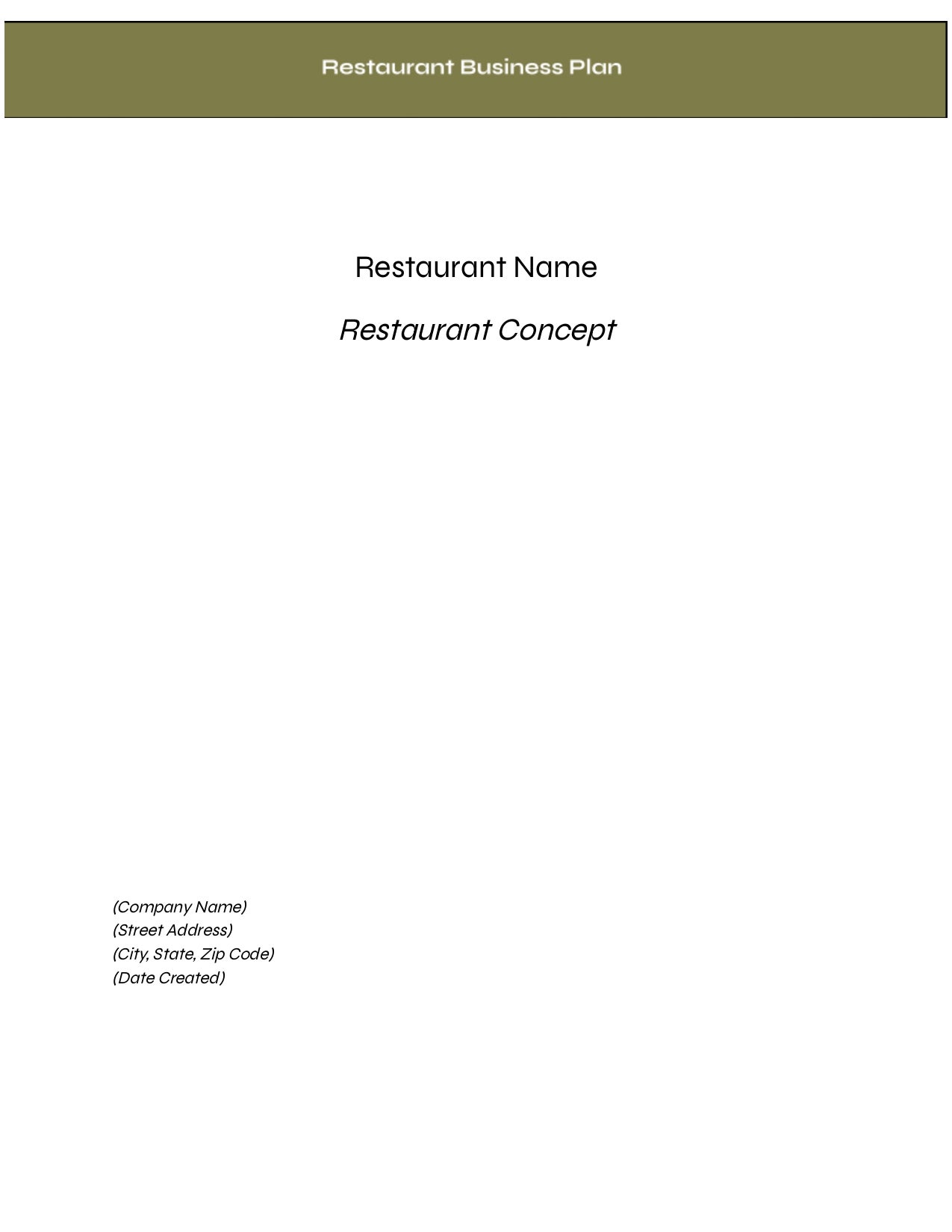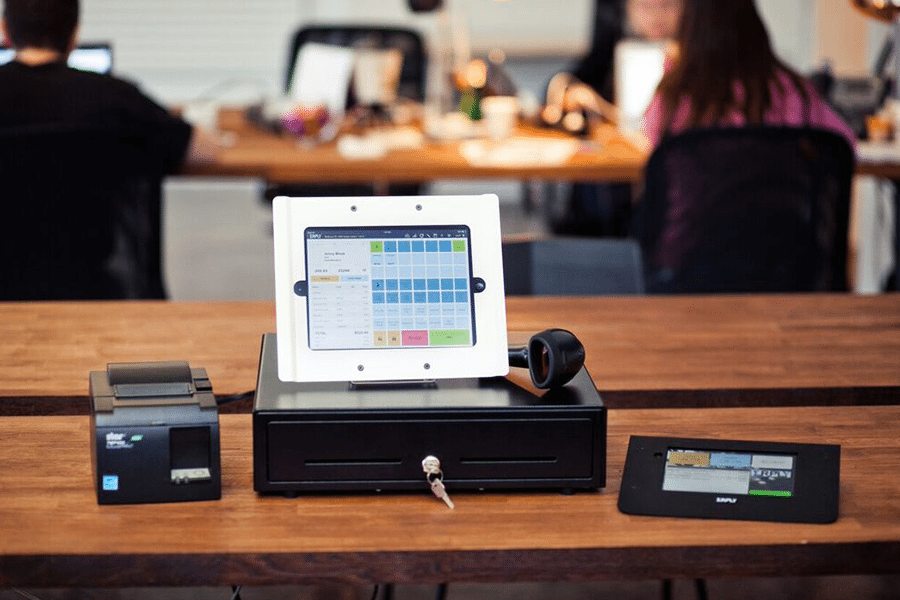If you want to know how to finance your restaurant, there are many ways—traditional loans from banks, loans or gifts from family and friends, lines of credit, crowdfunding, grants, or seeking investors. The best way to finance your restaurant will depend on the amount of money you need to raise, your restaurant type, and your available personal assets. Financing a restaurant can take several months, so let’s dive in.
Key Takeaways:
- Most independent restaurants combine financing types to raise the money they need to open or operate.
- Nearly all restaurant businesses begin with some personal investment.
- Organizing your personal finances and related paperwork before you begin looking for restaurant financing will save you time.
- You don’t need perfect personal credit to finance your restaurant business; see the alternative and creative funding suggestions I listed for options.
What Is Restaurant Financing?
Restaurant financing is any money that you source to start, renovate, or expand your restaurant business. The term restaurant financing can also refer to the process of finding this money. Restaurant businesses cost anywhere from $100,000 to $2 million to start, so nearly all restaurant owners seek some form of financing.
Traditional Restaurant Financing Options
Traditional restaurant financing options are well-established financing tools (like business loans) that are available in obvious places (like brick-and-mortar banks). These traditional financing options tend to have the strictest requirements for borrowers but also carry less risk than some alternative funding sources.

Funding your restaurant? Start with Guidant Financial
Whether it’s an SBA loan, rollover, or alternative form of financing, you can get the funding you need to launch or expand your restaurant. Guidant Financial plates fast, flexible funding solutions tailored to restaurant owners.
Standard Business Loan
| Cost, Terms & Qualifications | |
|---|---|
| Typical Interest Rates | 6% to 15% |
| Maximum Loan Amount | Up to $500,000 |
| Repayment Term | Varies by lender, but 6 months to 5 years is typical |
| Minimum Credit Score | 700 |
| Minimum Time in Business | 2+ years |
| Required Debt Service Coverage Ratio (DSCR) | Generally greater than 1.25x |
A standard business loan is a traditional loan you apply for through traditional banks (thus why many people refer to them as “brick and mortar” loans). Increasingly, however, restaurant technology companies like Toast and SpotOn offer their own lending options. Traditional loans have the highest bar to clear; you’ll need an excellent credit score and possibly need to put up some collateral to secure the loan.
However, if you qualify, you can typically get up to $300,000 or more, depending on your business history and needs. One of the major benefits of a standard business loan is that you can spend it on whatever you need, whether that is renovations, equipment, payroll, supplies, or general operating expenses. Traditional loans are worth pursuing because they tend to have the most reasonable interest rates and repayment terms.
Small Business Administration (SBA) Loan
| SBA 504 Loan | SBA 7(a) Loan | |
|---|---|---|
| Typical Interest Rates | CDC portion of the loan: 6% to 6.5%Lender portion of the loan: 6% to 12% | Fixed rate: 13.50% to 16.50%Variable rate: 11.50% to 15% |
| Maximum Loan Amount | $5.5 million | Up to $5 million |
| Repayment Term | 10, 20, or 25 years | Real estate loans: Up to 25 yearsEquipment, inventory, or working capital loans: Up to 10 years |
| Minimum Credit Score | Varies by lender, but 680 is recommended | |
| Minimum Time in Business | More than 2 years is recommended | |
| Required Debt Service Coverage Ratio (DSCR) | Varies by lender, but 1.25x is recommended | |
A Small Business Administration (SBA) Loan is a bank loan that the Small Business Administration guarantees. This guarantee reduces the risk for lenders, allowing them to offer loans to small businesses that may not qualify for the lender’s direct financing options. There are six types of SBA loans; the one you need will depend on how much money you need (from $50,000 to $5 million) and your intended use (working capital, commercial real estate purchase, etc.). The most common SBA loans for independent restaurants are the 7(a) and the 504 loan.
You apply for SBA loans through lending institutions like brick-and-mortar banks, credit unions, or micro-lending organizations. SBA loans are great for independent restaurants because the interest rates tend to be low, with repayment terms of up to 25 years.
Business Line of Credit
| Typical Qualification Requirements | |
|---|---|
| Application to Funding Speed | Unsecured: 1 to 4 days Secured: 7 to 21 days |
| Loan Amount | Unsecured: Up to $500,000 Secured: $5 million and up (can vary based on value of collateral) |
| Estimated Annual Percentage Rate (APR) | Unsecured: 8% to 30%-plus Secured: 6% to 15% |
| Repayment Term | 6 to 36 months |
| Repayment Schedule | Weekly or monthly |
| Other Loan Fees | Varies |
| Credit Score | 600-plus |
| Time in Business | 6 months |
| Annual Revenue | $100,000-plus |
| Typical Qualification Requirements | |
|---|---|
| Credit Score | 600-plus |
| Time in Business | 6 months |
| Annual Revenue | $100,000-plus |
A business line of credit gives you access to a set amount of funds that you draw from only when you need to. You’ll only pay interest on the funds you actually use. Business lines of credit are an excellent buffer for restaurant renovations (which often go over budget) or to help you meet payroll during lean business times. Lines of credit are offered through traditional banks,credit unions, and online lenders, though restaurants may also find vendors and restaurant technology partners that extend lines of credit.
There are two types of credit lines: secured and unsecured. With a secured line of credit, you’ll need to put up collateral worth the funds you want to access. An unsecured line of credit requires no collateral. If you have collateral like real estate, vehicles, or stocks to put up, you’ll get a lower interest rate and typically get access to more money. Though you risk losing your collateral if you default on repayment.
Unsecured lines of credit tend to be less risky, but without collateral to support them, lenders tend to offer lower funding amounts and higher interest rates. However, if you default, you won’t lose any collateral.
Alternative Financing Sources
If you don’t have a credit score over 600 or are starting a new restaurant, it can be hard to get approved for traditional financing. So many independent restaurants pursue alternative financing.
Finding Investors
Working with investors is an incredibly common way for independent restaurants to raise capital. I’ve never worked in an independent restaurant that didn’t have investors. Investors may be fellow restaurant owners, former bosses who believe in your abilities, family members, friends, or high-net-worth strangers looking for an investment opportunity (also known as “Angel Investors”). Investors will offer you funds to start or renovate your business, expecting you to repay them with future restaurant profits.
Some investors—typically ones who invest $100,000 or more—will require an ongoing share of profits after you repay their initial investment. Sometimes, this return on investment is for a set number of years, or sometimes, it is for the life of your restaurant. A business attorney will tailor an investment agreement to match whatever you and your investors agree to.
The amount of money you can raise from investors depends entirely on the strength of your personal and professional networks and the strength of your restaurant concept. You can raise as little as $50,000 or up to $2 million from the right investors. The downside is that many investors want a voice in your business, especially if they feel they aren’t getting repaid quickly enough. You’ll get the advantage of getting lots of business advice, but sometimes that can be frustrating. And, of course, in many cases, you must buy out your investors’ shares of your restaurant if you want to become the sole owner, even after their initial investment is repaid.
Friends and Family
Many restaurants get informal loans or monetary gifts from friends and family for at least some of their startup or renovation funds. Loans from friends and family offer the benefit of looser repayment terms. Some may simply gift you money. However, you’ll need to pay tax on monetary gifts over a certain amount (an accountant or a business attorney can advise you here).
The major challenges of financing a restaurant through loans or financial gifts from friends and family are personal. Are your relationships strong enough to withstand the stress of business setbacks? Can your friend or relative afford to wait for repayment until your restaurant is profitable? Or can they afford to lose their investment if your restaurant founders?
Merchant Cash Advance
| Typical Rates & Terms | |
|---|---|
| Factor Rate | 1.10x to 1.50x times the loan amount |
| Estimated APR | 40% to 150% and up |
| Holdback Percentage | 10% to 30% |
| Loan Amount | $5,000 to $1 million |
| Repayment Term | 3 to 24 months |
| Funding Speed | 1 to 5 days |
| Typical Qualification Requirements | |
|---|---|
| Time in Business | 6 to 12 months |
| Annual Revenue or Credit Card Sales | $30,000 to $150,000 |
A merchant cash advance (MCA) is an advance on your future credit card sales. An MCA is incredibly expensive—interest rates can sometimes be as high as 300% APR. It is really only worth considering as a last-ditch effort if you cannot get approved for more conventional loans and have tapped out all other creative financing options (see section below).
Restaurants don’t usually have difficulty getting approved for an MCA; as an industry that processes a large amount of credit card sales, it is a logical fit. You’ll need to apply for an MCA through a lender specializing in MCA loans (see the Fit Small Business finance team’s top recommendations below).
Your MCA repayments come directly from your future credit card sales, so there is no need to put up collateral, and your credit score is typically irrelevant. Though MCA lenders usually want to see that you have been in business for at least six months and that you process at least $30,000 in credit card sales annually.
The pros of an MCA are that you receive the funds in a lump sum (so you can use them to offset unexpected expenses), and the repayment amounts are based on a percentage of your credit card sales. So, if you have a lean month, your payment is lower, but if you are busy, you can repay your MCA more quickly. The total amount you qualify for is based on your sales history, but it’s not uncommon to see MCAs as high as $1 million. But keep in mind, if you fail to use them carefully, MCAs can lead to an ongoing debt spiral that can make repayment completely unaffordable. So proceed with extreme caution.
Commercial Real Estate Loan
| Cost, Terms & Qualifications | |
|---|---|
| Interest Rate | 7% to 10%, variable or fixed |
| Maximum Loan Amount | No Maximum |
| Loan Term | 5 to 25 years |
| Minimum Downpayment | 20% to 35% of purchase price |
| Minimum Credit Score | 700 |
| DSCR | Minimum 1.25x |
| Collateral | May require additional collateral |
| Owner-occupancy Requirement | At least 51% |
If you plan to purchase your restaurant location, you can get a commercial real estate loan. Depending on your creditworthiness and your business plan, you may be able to roll your renovation costs into the real estate loan (or apply for a separate construction loan). Any bank that handles mortgages and standard loans can issue a commercial real estate loan.
Buying your restaurant space is not common in the restaurant industry (most restaurant owners lease). But if you have the means to do it, owning your location can save you money in the long run and allow you to build equity. When you own your location, you don’t have to worry about rent increases, unresponsive landlords, or losing a lease negotiation after establishing your restaurant.
There are no hard limits on how much money you can get in a commercial real estate loan; the total loan amount will be based on the appraised value of your location and your own creditworthiness.
Home Equity Loan
| Cost, Term, or Qualification for HEL | Value |
|---|---|
| Loan Amount | Up to 95% combined LTV |
| Expected Annual Percentage Rate (APR) | From 4% to 8% |
| Closing Costs | From 2% to 5% |
| Annual Fees | Varies |
| Other Costs | Appraisal fees, application fees |
| Repayment Term | Up to 30 years |
| Minimum Credit Score | 660 |
Sometimes called a “second mortgage,” a home equity loan allows you to borrow money against the equity you have accrued on your house. A home equity loan is not exclusively used to fund restaurant businesses; many people use it for home improvement or other large expenses. Financing your restaurant with a home equity loan—or a home equity line of credit—is only a reasonable idea if you own at least 50% equity in your home. You can typically get up to 90% of your home’s value in the home equity loan, but if you own your home outright, you won’t have to stake your home’s whole value for the loan.
You’ll still need a great credit score (typically higher than 650) to get approved for a home equity loan or a home equity line of credit. Owning a restaurant is already a stressful endeavor, and tying your home to your restaurant’s success will inevitably increase that stress. So I advise friends opening a restaurant to exhaust all their other financing options before using their home to finance a restaurant.
Credit Card Financing
You often hear stories of restaurant owners who financed their restaurants by “maxing out their credit cards.” I don’t recommend relying on credit cards to fund your entire restaurant; the interest rates are high, and it’s easy to rely on them too much. But using credit cards to finance some key purchases or manage cash flow pinches is not a terrible idea. Just make sure you use a credit card tied to your business. Using a personal credit card to fund business purchases may violate your card issuer’s terms and conditions.
You can get a business credit card directly from a card issuer or through your bank. They are great when you don’t have collateral to put up or have trouble getting approved for a loan. Business credit cards are best when you don’t need more than $50,000. Using a business credit card can also help you build credit and raise your credit score if you eventually plan to apply for more traditional restaurant financing.
Creative Financing Strategies
There are more ways to finance a restaurant than the traditional and alternative routes. These are more creative strategies if the customary routes aren’t a fit for your restaurant.
Equipment Financing
| Typical Equipment Loan | Typical Equipment Lease | |
|---|---|---|
| Origination Fees | Up to 3% of the loan amount | 0% to 3% |
| Interest Rate | 5% to 35% | 4% to 30% |
| Loan Amount | Up to $5 million | |
| Loan Term | 2 to 7 years | |
| Down Payment | 0% to 30% | 0% to 20% |
| Credit Score Requirement | 600 | 500 |
| Time in Business Requirement | 0 to 12 months | 12 to 24 months |
| Annual Revenue Requirement | Varies per lender | |
| Funding Speed | 1 to 7 days | |
Restaurants have a lot of equipment, from commercial kitchen ranges to food processors, and more. Financing this equipment via loans or leases is another way to finance a restaurant. There are two ways to finance equipment: via leases from equipment vendors or using equipment you own as collateral for a commercial loan.
Leasing equipment is very common in restaurants. In addition to lowering your upfront costs, you can typically get approved for an equipment lease even if your credit is not great. Leases also help you get the most updated and upgraded equipment.
Crowdfunding
Crowdfunding is an increasingly common way to finance a restaurant. With crowdfunding, your credit score doesn’t matter, and you won’t have to repay the funds. You’ll raise the most funds if you offer incentives like free meals, recipe books, or VIP access to events once your restaurant is open. Crowdfunding allows friends and family who don’t have a lot of excess cash to contribute to your restaurant business.
Crowdfunding for restaurants has its downsides. It can be hard to raise more than $20,000 to $50,000. There aren’t a lot of studies done on restaurant crowdfunding, but in 2019, the International Journal of Hospitality Management found that less than 33% of restaurant crowdfunding campaigns met their fundraising goals.
But the bonus of crowdfunding is that it gets your network excited about your business. And it can be a great way to raise funds for virtually no cost. My favorite way to use crowdfunding for restaurants is to finance a major, visible purchase like your walk-in cooler or a wood-burning oven. Giving your contributors a tangible asset to focus on can help encourage funds. And if you aren’t relying on crowdfunding to finance your whole restaurant, you won’t be disappointed if you fall short of your goal.
Restaurant Grants
Numerous federal, state, and local small business grant programs help fund new and existing independent restaurants. Restaurant grant opportunities vary by location, business type, and owner demographics. So the best way to find grants for your restaurant business is to check with your local Small Business Development Center (SBDC) or local Chamber of Commerce. Industry groups like the National Restaurant Association and the Independent Restaurant Coalition also frequently publish information about new grant opportunities.
Restaurant grant opportunities change frequently as new legislation passes or new nonprofit organizations are founded. So keep your eyes and ears open to learn of new opportunities.
Many small business and restaurant grants are designed to support businesses owned by people in specific demographic groups. You’ll frequently find grants to support businesses owned by:
- Women
- Veterans
- Spouses of Veterans
- People of color
- New Americans
- People who identify as LGBTQ+
- People who live in rural areas
- Recent college graduates
- Mothers
- Low-income business owners
You may also find grants to support business improvements, such as making your restaurant space comply with ADA standards to be more accessible for people with disabilities or to become more energy efficient. Most grants fall in the $1,000 to $25,000 range. So, a single grant won’t be enough to fund your whole restaurant business. But it’s still worth applying for every grant you qualify for. You may win a few, which can add up. Plus, applying for grants—especially winning grants—introduces you to a new network of people excited about your restaurant’s success.
Many small business grants cannot be used for franchise businesses. So if your planned restaurant is part of a franchise, more traditional financing options are a better fit.
How to Choose the Best Restaurant Financing
There are many avenues to financing a restaurant, but they all take time and administrative legwork. Taking time to strategize will keep you from spinning your wheels and wasting valuable time. The best financing for your restaurant is the kind you get approved for. However, asking yourself a few questions before you begin applying for funds can help you focus your efforts.
How much money do you need?
If you are starting a brand new full-service restaurant, you could need to raise $100,000 to $2 million. If you are starting a small food-based business or have some personal funds lined up, you won’t need such a large amount. The larger the amount you need to finance, the more traditional your financing route should be.
If you need less than $100,000, less traditional routes like crowdfunding or seeking grants can get you what you need. According to a survey of restaurant owners, those who needed less than $100,000 tended to rely mostly on credit cards, savings, home equity loans, and borrowing funds from family and friends.
Do you need ongoing business or financial advice?
Many restaurant owners have restaurant experience. And you may also have business experience or acumen. It’s OK if you don’t have financial experience. You can frequently get business and financial advice from small business supporting agencies and non-profits. If you plan to go the traditional financing route, the loan officer at your lending institution can typically point you toward some resources.
Many grants come with financial planning and business advice. And if you need to shore up your financial knowledge alongside your fundraising efforts, bringing on a business partner or seeking investors who can mentor you in business and financial planning would be a smart move.
Do you meet demographic requirements for any available grants?
Many grant-awarding organizations design small business grants for specific types of small business owners. These categories tend to fall along the lines of people who are typically underrepresented in small business ownership—like BIPOC individuals, women, and LGBTQ+ community members. But you also find a lot of grants for military veterans and their spouses, as well as plenty of awards tailored for new Americans.
If you fall into any of these categories, you might want to consider applying for grants as part of your restaurant financing plan. Grants are not something you can only apply for when you start your restaurant. You can find grants to help you update your existing restaurant to be more energy-efficient or more accessible for disabled people.
If you fall outside of the demographic requirements for many small business grants, then traditional loans, crowdfunding, and seeking investors will be smarter strategies.
What to Do Before Applying for Financing
No matter what type of financing you seek for your restaurant, you’ll want to get some things in order before you begin your financing journey.
Organize Your Documents
The requirements for getting approved for restaurant business financing vary depending on the type of financing you need. Traditional lending institutions like banks, credit unions, and suppliers will typically want to see a healthy personal credit score from new restaurant owners and a track record of positive business dealings from existing restaurant owners. Before applying for financing, you should also document:
- The amount of money you need to borrow
- How the money you raise will be used
- The type of financing you hope to secure (SBA loan, line of credit, etc.)
- A proposed repayment schedule based on your sales projections
- Any collateral or equity you plan to offer
Build a Strong Team
Lenders want to know that you have the ability to run a profitable restaurant before they give you money. The sooner your business is profitable, the faster they get their money back. Or, in the case of investors, the greater the return on their investment. Pull together an experienced team of managers and chefs to fill in any gaps in your experience. An added bonus? The core members of your restaurant team may be potential investors or have a network of potential investors you can tap.
Refine an Elevator Pitch
An elevator pitch is, essentially, a description of your restaurant concept and path to profitability that is short enough to get an investor’s attention in the span of an elevator ride. A strong elevator pitch shows lenders and investors that you have taken time to refine your restaurant business.
A good elevator pitch will typically land you a longer, scheduled meeting where you can show the potential lender or investor your full restaurant strategy. Test potential elevator pitches on friends, family, and other industry professionals, and refine your pitch until it is really attention-grabbing.
Write a Business Plan
After your elevator pitch gets you in the door, your business plan will show potential partners, investors, and lenders that you have thoroughly developed your restaurant idea into a profitable business. A detailed business plan is the foundation of any financing application.
Whether you approach banks, angel investors, granting agencies, or family members, a solid business plan will show potential lenders that you have a plan to repay a loan or provide a return on their investment. The downloadable template below can help you get started. Just enter your email address to receive a copy in your preferred format.
Secure Advisors
Very few restaurant owners are experts at major financial deals or contract law. Being “generally good at business” will not be enough to protect your interests through the restaurant financing process. You should secure someone (or multiple someones) with finance experience to help guide you through the financing process. The advisors you need will vary based on the type of financing you pursue, but any restaurant owner can benefit from a visit to their local Small Business Development Center (SBDC) or a conversation with a member from the Service Corps of Retired Executives (SCORE). Both the SBDC and SCORE offer free advice.
If you are seeking loans, hiring an accountant to help you create accurate sales and cost projections is a good idea. Hiring an attorney to assist with your restaurant financing process is absolutely necessary if you seek investors or business partners. You will need an attorney to draw up contracts and investment agreements or to help walk you through the terms a potential investor offers. An attorney is also good if you borrow large amounts of money from family and friends; the attorney can draft loan agreements and promissory notes or tax disclosure documents if someone gifts you money.
Bottom Line
There are many ways to finance a restaurant. All the avenues to restaurant financing require you to be prepared to show potential lenders or investors your restaurant’s road to profitability. A good personal credit score is also helpful. Still, if you don’t have that, you can leverage your industry experience to earn the confidence of your personal contacts or apply for grants to help offset some of your initial expenses. Most restaurants use several types of financing to get the funds they need to open, operate, or renovate. So don’t be afraid to diversify.




